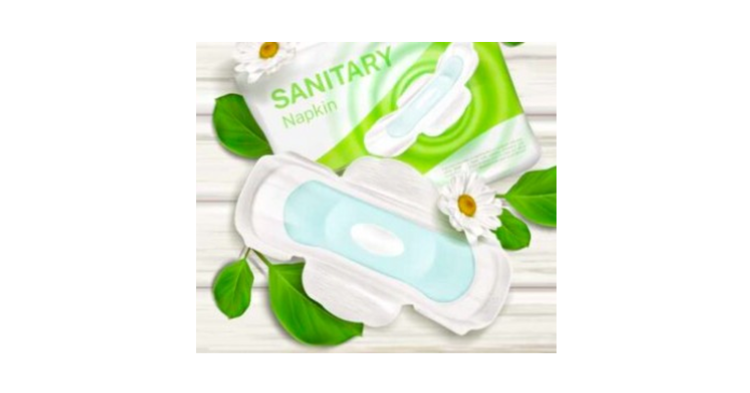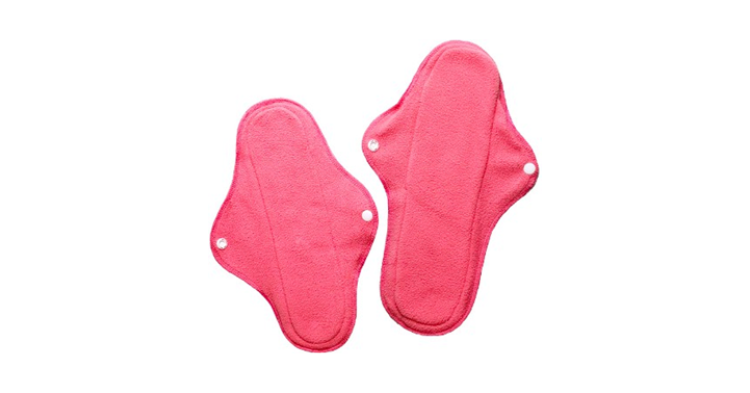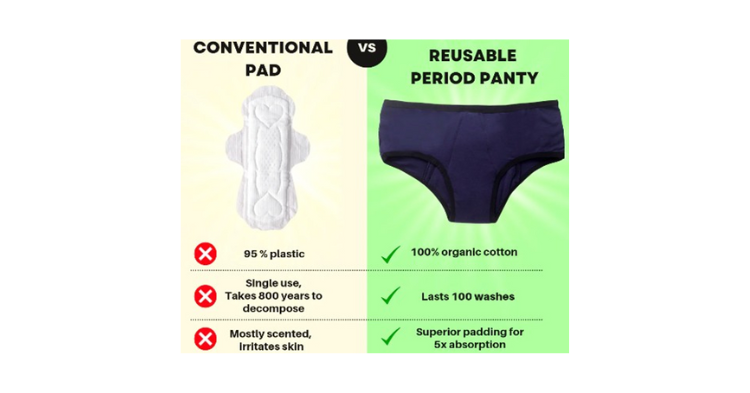We are living on this planet as if we have another one to go to.”
Despite our first instinct being to deny this quote after hearing it, we have to admit that it does hold truth. Landfills consume vast amounts of area, destroying land and oceans; our excessive use of vehicles emits harmful fumes into the air; and waste litters the sidewalks of many countries, endangering wildlife. And, sadly, one of the primary contributors to these landfills is the menstrual waste.
According to a Times of India analysis, 12.3 billion metric tonnes of sanitary pads are discarded each year, resulting in around 113,000 metric tonnes of garbage. This is due to the fact that these pads are made out of plastic and non-biodegradable components that do not degrade quickly enough to be environmentally beneficial. Instead, they occupy landfill areas for up to 500-800 years, creating vast amounts of land and air pollution.
So, how do we address this? We don’t have control over our bodies’ natural processes, but we do have control over the sanitary products we use. Fortunately, and especially recently, various alternatives to the traditional sanitary pad have been introduced—alternatives that are profoundly more sustainable and similarly comfortable.
Biodegradable Sanitary Pads

It can be tough to transition from one sanitary product to another once you’ve been accustomed to using one over all these years. That’s why organic pads are the best place to start when transitioning; they’re unquestionably the most similar to traditional pads, with the main difference being that they’re made of organic materials, which allow the pad to decompose faster without leaching any toxins into the environment. Furthermore, they are more breathable than regular ones. Unfortunately, they still take up to a year to fully disintegrate, taking up significant space in landfills and waste dumps; as a result, they aren’t the most sustainable solution. However, for a newbie who has grown too accustomed to traditional pads, these are the ideal first step towards a much larger transformation.
Reusable cloth pads

When you initially start making the changeover, these cloth pads are the best second step; they’re quite comparable to the basic pad. The application is similar, with the only visible difference being that you must wash, properly dry and reuse them. You only need to change them every 3-6 hours, just like a regular pad, and after you’ve purchased enough to last a whole cycle, you won’t need to buy more for at least a few months. The advantage of them over organic pads is that they produce no waste but one needs to ensure that the cloth pads are properly sun dried.

Menstrual cups will likely be the most noticeable difference from pads because they demand you to insert the device, which can be incredibly difficult to begin with. Menstrual cups can be a good permanent alternative after experimenting with the other two options and growing comfortable with the notion of not using a pad. It may be difficult to find the right size and brand at first, but if you do and learn how to use it, the cup can endure for up to ten years. Furthermore, unlike the other options, you can swim with it, reducing the likelihood that your period would interfere with your everyday activities.
These are only a few of the alternatives to traditional sanitary pads and tampons. There are methods for disposing of sanitary pads in a sustainable manner, such as sanitary pad incinerators (machines that burn sanitary pads at the appropriate temperature and convert them to ashes).
The best thing we can do is start gently transitioning to eco-friendly solutions. Begin with the first two selections and work your way up to the menstrual cups. Finally, both your body and the environment will benefit!
Priyanka Sajja, Environment Enthusiast, Period Advocacy, TISS (Social Innovation & Entrepreneurship), Co-founder Artha Samarth Consultancy LLP (Social impact consulting firm based at Hyderabad)
Disclaimer: The information in this blog reflects the author’s research, and personal experiences. Youth4Water Plus neither endorses, nor is responsible for the views expressed by the author.







